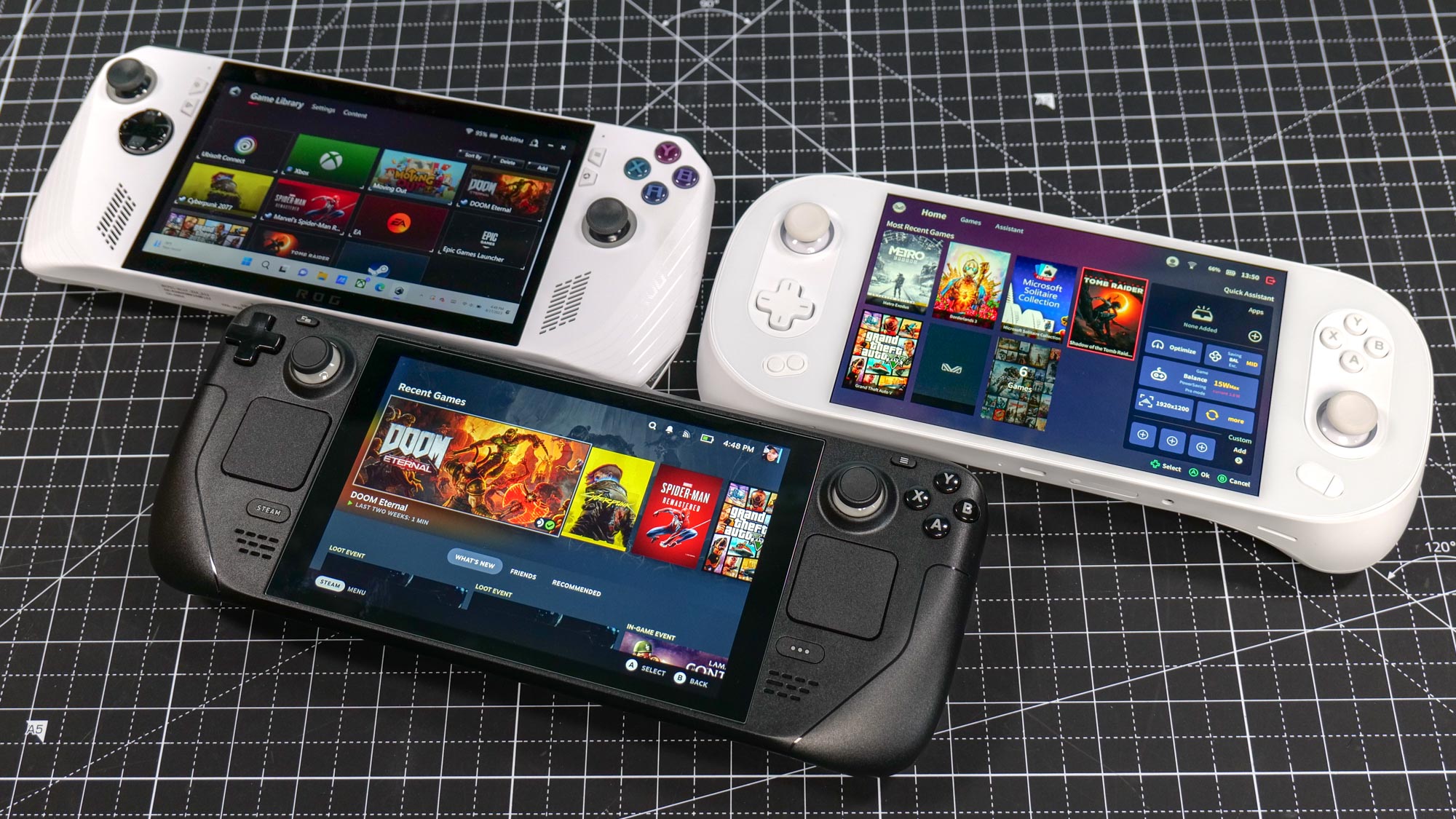
This generation of gaming consoles may be less than four years old, but it’s become increasingly clear that the big dogs of console gaming have turned their attention to the next generation of living room boxes.
With the Nintendo Switch 2 supposedly launching in April 2025 and reports of new consoles in the works from Sony and Xbox, now might be the time to consider what the next generation will actually look like.
From my vantage point, the future looks handheld.
Handheld hints
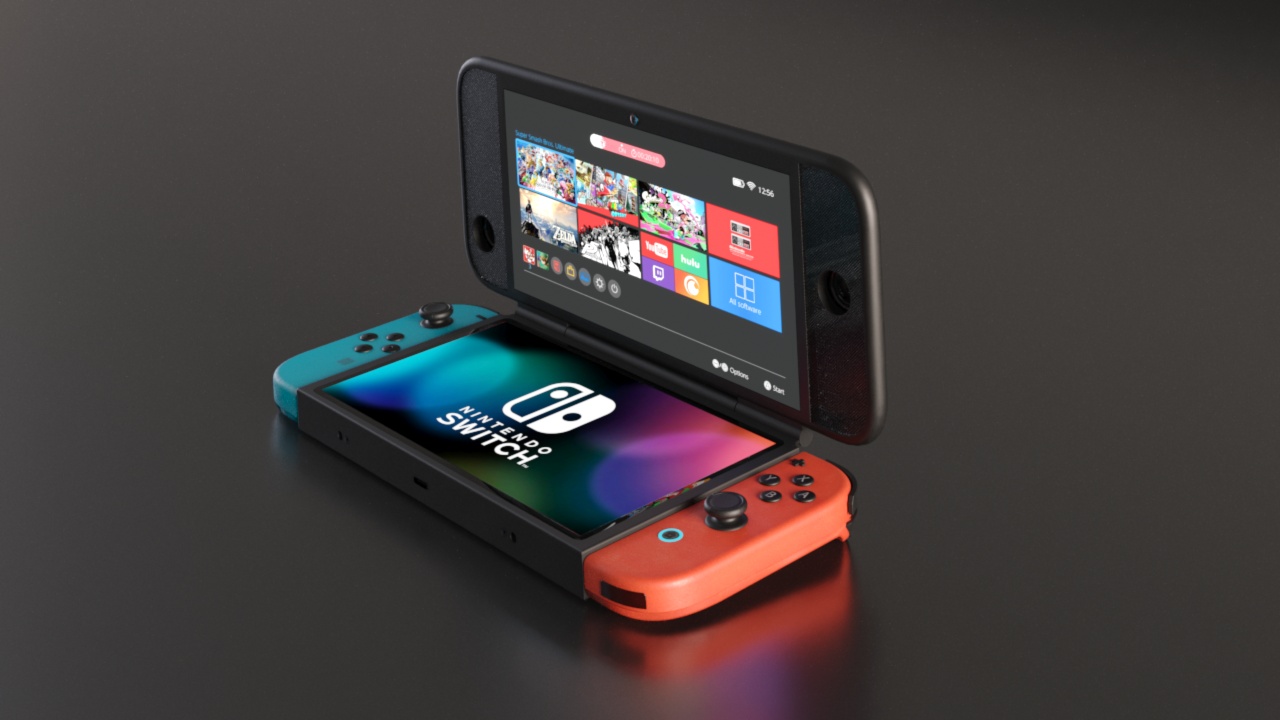
For about a year now, Xbox CEO and Microsoft president of gaming Phil Spencer has been tap dancing around the idea of an Xbox handheld device and whether or not Microsoft will release a mobile Xbox. Finally, in an interview with Bloomberg from late September 2024, new Xbox president Sarah Bond all but confirmed that some sort of handheld device is on the minds of Xbox as a way to “meet gamers wherever they are.”
Unlike Xbox, the rumors surrounding Sony producing a new handheld console haven’t been taken as directly from the horse’s mouth.
In February, regular YouTube leaker Moore’s Law is Dead reported that Sony is working on a “non-streaming, pocket-sized console” — in other words, not another PlayStation Portal, despite that device’s popularity. In August, hardware leaker Tom Henderson claimed that Sony is “paying very close attention” to the current handheld market. The latest rumor from September alleges that Sony is working on two different gaming platforms for the PS6 generation, a standard console and some kind of handheld.
Where there’s smoke, as they say.
How did we get here?
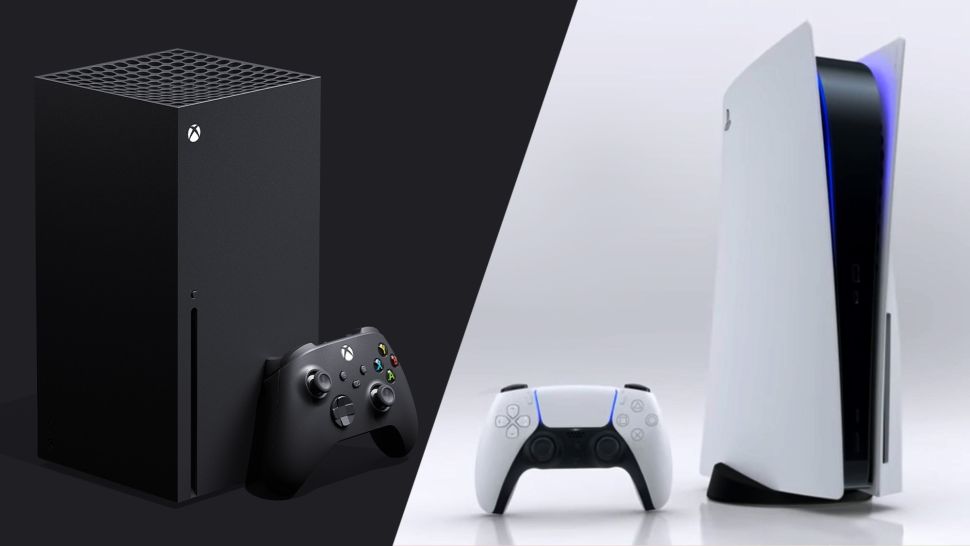
When the original PS5 and the Xbox Series X — and to a lesser extent the Xbox Series S — launched in 2020, they were positioned as being so powerful that consoles were finally taking on the PC gaming crowd and the PC Master Race goons.
Unfortunately, this has meant ever more expensive consoles that are already losing out to more powerful PCs as the tech races ahead there. Though with the recent Ouroboros push for AI in every single thing that could be considered electronic, maybe the PC power race is slowing down a bit.
This also meant that the PlayStation’s ongoing growth into a living room behemoth had taken on its final form. The console is a beast and the soon-to-ship PS5 Pro will be no smaller.
Despite that, the high-end consoles like the PS5 Pro aren’t pointing to the future of PlayStation. There are a lot of questionable opinion articles out there with titles like "The PS5 Pro Might Make Me Become a PC Gamer." No, it won’t, and you didn’t need the PS5 Pro anyway. It won’t change what Sony’s gaming strategy is any more than the PS4 Pro was an expensive toy for you to buy when it released that slimmer monster.
Xbox has always been positioned as bringing PC gaming to the living room, but Sony has been gunning for the graphics and performance title since the original PlayStation, when it focused on 3D polygon graphics over sprites and a desire for improved audio quality.
Meanwhile, Xbox has struggled with this generation, falling behind Sony and Nintendo in sales. Microsoft responded by buying up Activision and ZeniMax, and closing every indie studio it could get its hands on. So, Microsoft need something to shake things up.
What the experts say
Between the two major console manufacturers (and Nintendo), Sony might be the easier one to parse out a future.
We spoke to Tom S. who runs the Moore's Law is Dead YouTube channel and its tertiary podcasts who said, " Sony has no reason not to double down on what they’re doing now. Let's not get too greedy, and keep executing."
He believes there's an appetite for the high-performance consoles that Sony produces because they provide PC gaming at a lower cost than gaming PCs, and that includes the absurdly priced PS5 Pro.
Phil Hayton, hardware editor at GamesRadar, says that "In 2024 and beyond, the next generation is all about the bespoke locked down operating system." Sony has that with its PlayStation OS, and it's able to build the ecosystem around it.
Both Hayton and Tom believe that if Sony wants to produce a true handheld, the company will make the mainline PlayStation 6 behemoth for your living room and the handheld will be built on the same, most likely AMD, architecture just clocked lower.
Tom frequently mentioned that Sony is in an experimental phase where the company is throwing things at the wall to see what sticks. The Portal is an experiment it can't keep in stock. Moore's Law is Dead is known for being a fairly reliable rumormonger, and Tom mentioned that Sony didn't really want to even produce the PS5 Pro. "I don't know that they care about it. I think they're using it as an opportunity for better marketing," he added.
However, when it comes to how the major console makers might move forward, Xbox has become the wild card.
Tom appeared baffled by Microsoft's gaming arm: "I don't know what Xbox is doing anymore. I don't know what they're doing with anything."
He believes that Xbox making a handheld is "them waving a white flag" and that it means Microsoft wants out.
Hayton took a different tack saying, "Strategically, I don't know if [Xbox] always has their eye on Sony anymore. They're a software company now, not a hardware company." But if Xbox falls away from hardware, Hayton notes, then the interest will fall away as well.
Tom said something similar noting that, "Maybe Microsoft has lost the console to Sony, and doesn't want to lose the console war to Valve next."
Still, Hayton said that one way Xbox moves forward is to miniaturize the Series S as a handheld with the mainline system being some version of the Series X. Xbox would need to strike a delicate balance between getting an acceptable amount of playtime on the battery life while producing strong performance graphically.
Tom of Moore's Law agrees here, adding that Xbox should just turn the Series S into a handheld that natively runs Windows. His idea was that it should be a Windows console where you could run apps like Steam, or even the Steam OS, as well as productive apps like Word or Excel.
Intruder alert
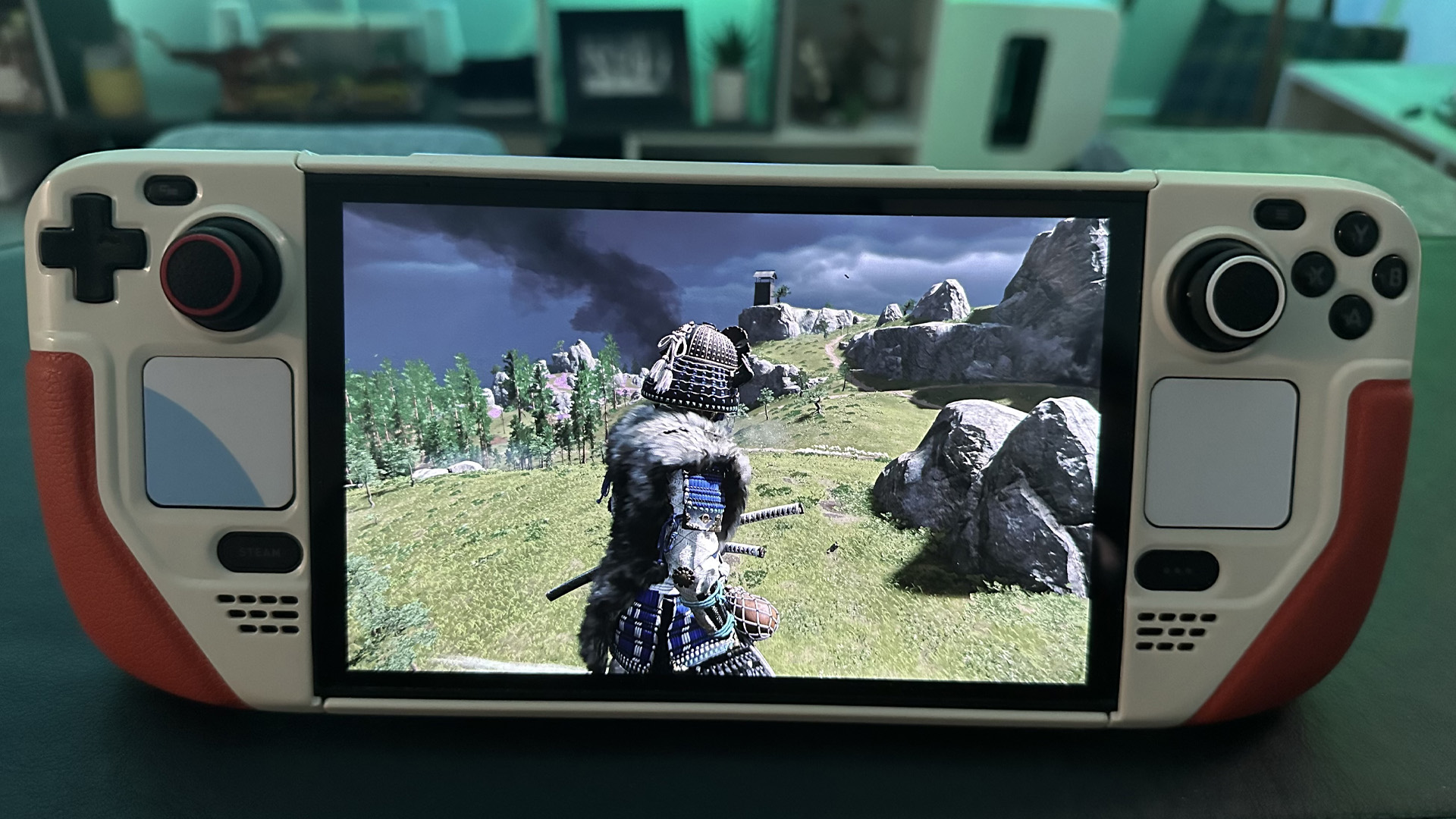
As we spoke with Tom and Hayton, it became clear that there is a third contender in the console market place who could make a splash with a sequel console — Valve.
"Valve's are still of the opinion that, 'We operate in an open PC market,'" says Hayton. However, they went on to say that they could see a number of tertiary companies, or even surprising companies like Qualcomm. Hayton noted that Qualcomm has schematics for handhelds and the company did announce Snapdragon Seamless last year that is meant to make Android devices talk to PCs and more.
Tom was more bullish on Valve potentially eating away at Xbox's place in the gaming market: "An Xbox handheld is a response to Valve. It's a response to Valve coming after Windows."
He noted that the Steam Deck is pretty close to "feature parity" with the Series S and said that the Steam Deck 2 gets close to PS5 performance.
The Steam Machine walked so the Steam Deck could flourish, but there's no reason Valve couldn't return to some kind living room box with Steam on it or a more dedicated Nintendo-esque dock to really make the Steam Deck a console gaming machine that is also handheld.
How can console makers find success with handhelds?
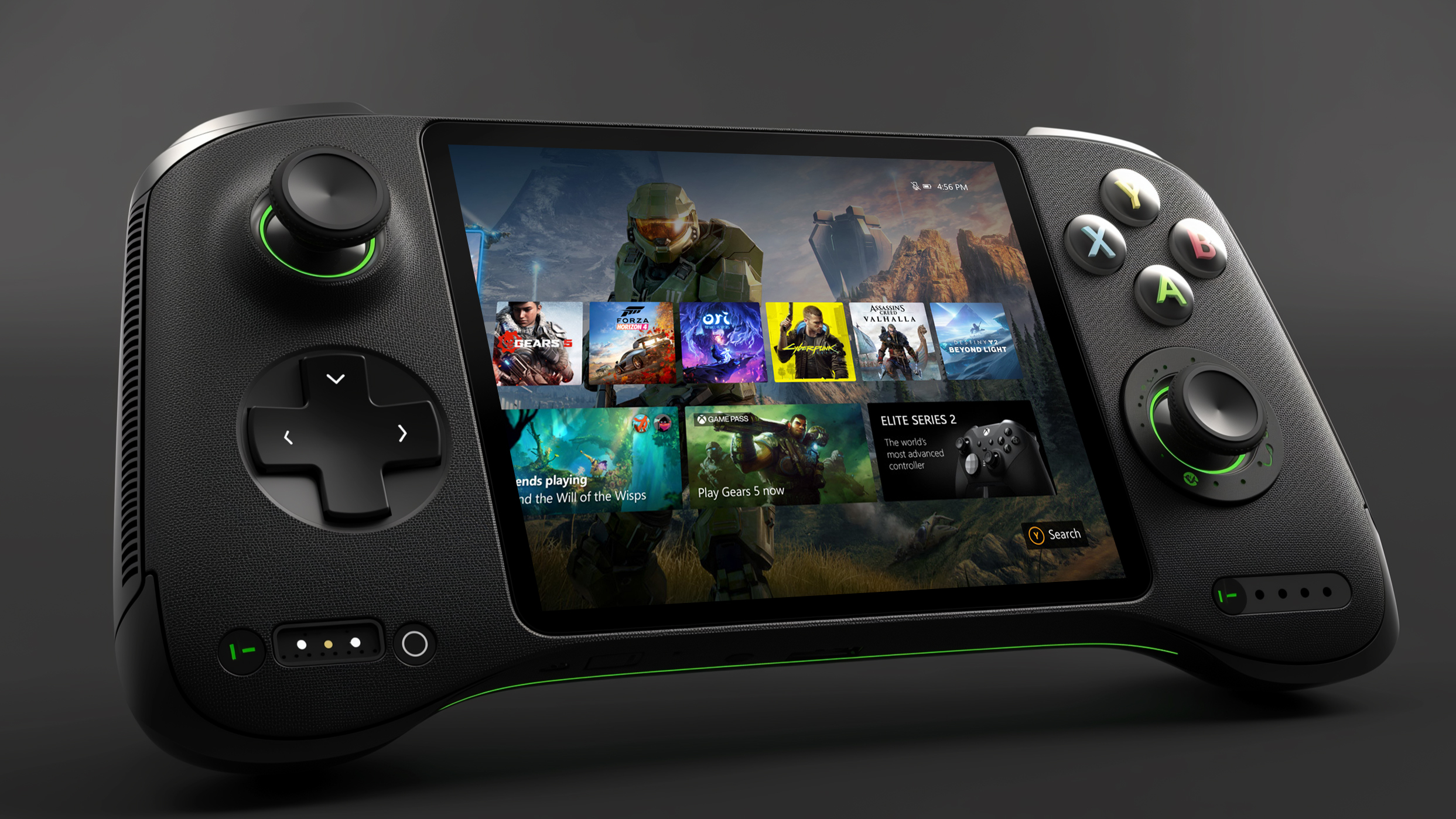
There are a couple of different paths that Xbox and Sony could take in producing their respective versions of a powerful handheld gaming console.
With the PC world diving headfirst into handhelds with some of best gaming handheld consoles, including the Steam Deck, the Asus ROG Ally X, and the Lenovo Legion Go, it wouldn’t surprise us if Sony and Xbox were “inspired” by those successes.
It is doubtful that either company will put in reduced feature sets for longer battery life, the way Nintendo has done with the Switch and supposedly with the Switch 2. Sony especially seems to like shoving the kitchen sink into their consoles, handheld or not.
Xbox’s Spencer has mentioned multiple times his appreciation for PC handhelds like the Asus ROG Ally or the MSI Claw. Whatever version of an Xbox handheld that gets produced will more than likely iterate off of those handhelds rather than the Switch. Hopefully, Microsoft will forgo Windows as the base software in favor of a more cohesive Xbox UI.
Where Nintendo has it correct — and where Sony and Xbox need to work at — is in a dock that fully allows for the couch-based console playing of yore.
I firmly believe that's why the PlayStation Vita failed. Were the Vita Sony’s version of the Switch and had a way to take PS3 games on the road, perhaps it would have been more successful.
Unless you can play triple AAA titles and the same titles as on your PS6, the next handheld won’t be worth the price tag. One of the biggest joys with the Switch is pausing play on your TV and throwing the console in your bag so you can play Zelda on the go or get in a few rounds of Mario Kart while on a plane.
That all said, we might have to bide our time, as there is no known timeline for the next Xbox. Meanwhile, Sony is allegedly looking to 2028 to launch its next console.







